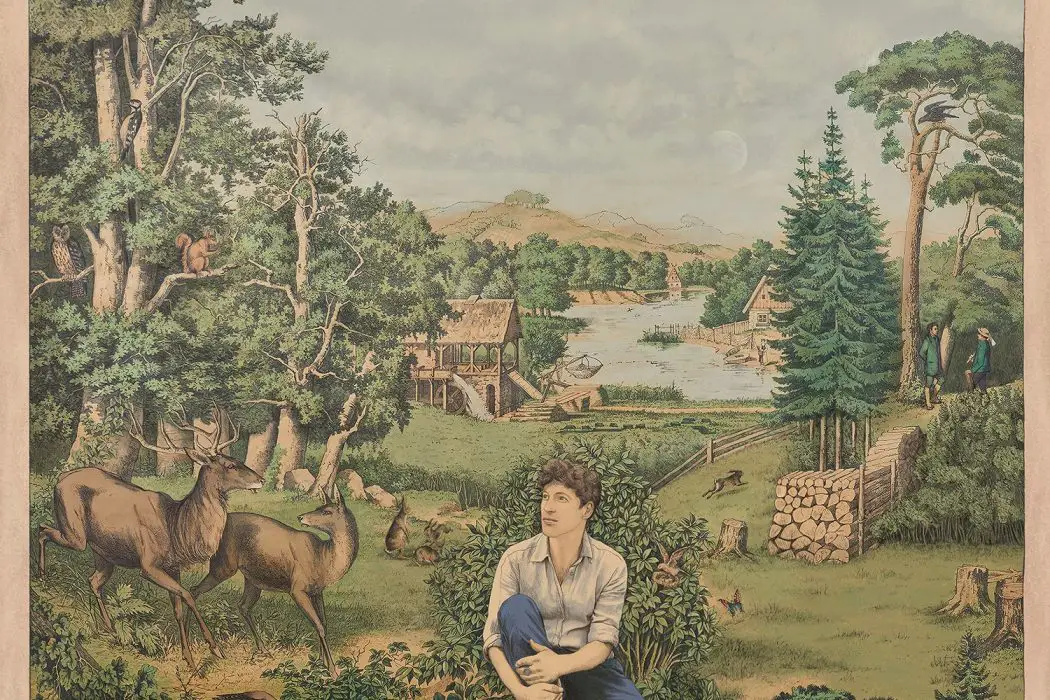By cleverly re-potting traditional British and Irish folk songs, Sam Lee has produced a clear, arresting album for our planet and its people in ‘Old Wow’.
•• •• •• ••
Sam Lee does not only sing folk songs, but actively finds, hears, and collects them. On Old Wow’s sleeve he sits barefoot, surrounded by flora and fauna in a pastoral landscape. Fittingly, for a man who has spent over a decade roving around Britain and Ireland in search of song, there are only a couple of rudimentary buildings within this idyll.
By carefully pruning, nurturing, and re-potting songs from Britain and Ireland’s folk traditions, Lee has cultivated a verdant, vital third album.
Stream: ‘Old Wow’ – Sam Lee
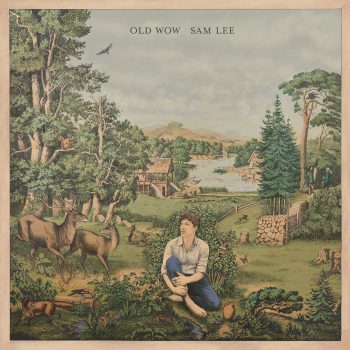
We sowed the seeds of love
We showed them how to sing
Grown with a knowing of
something in their blood
Old Wow’s opening track, “The Garden of England (Seeds of Love)”, was initially released as a single amidst the most high-profile Extinction Rebellion protests late last year. The immediate focus, therefore, is unsurprisingly ecological. By renaming the track with an emphasis on “the garden of England”, alongside the traditional, bracketed title, Lee is finding renewed meaning in the song, a creative trend which permeates Old Wow.
My garden was forsook
To weigh in on industry
Raised beyond the altar, under oak and ash
I grew to a bony rowan tree
Freely in my own country
But some oak trees won’t twist
For they’re brittle beneath the bark
Better that limbs be broke and brought to ground
And service the light to dark
We’re just servants unto the dark
There is barely a pause before a gospel-inspired, a cappella introduction ushers in “Lay This Body Down.” Indeed, the track is an adaptation of an African-American spiritual. Despite the clear nod towards this from the vocals – which feature Cosmo Sheldrake, Dizraeli, and Mara Carlyle – the song also contains the distinctive, earthy foreboding which Lee so often utilizes.
Plucked bass and simple drums are joined by an electric guitar, an unprecedented addition to a Sam Lee song – in this case provided by Old Wow’s producer, Bernard Butler. Piano is added gradually with great effect, sauntering through the song between Lee’s increasingly heightened vocals and trickles of brass. Together, the instrumentation provides a largely steady base on top of which Lee and his ensemble sing.
The result is a pleading track, rich in both lyrical history and imagery. What ostensibly begins as a traveller’s request for respite soon reveals itself to be an ode to the peace which death brings. The body’s return to the earth, lit by the natural cycles of “sunlight” and “moonlight”, is our restful reward.
I go to judgement
In the evening of the day
Lay this body down
My soul and your soul
Will meet on that day
Lay this body down
Oh graveyard, oh graveyard
I’m walking through that graveyard
Lay this body down
Sam Lee’s dulcet vocals also announce the next track; his voice is aptly sprinkled with faint piano notes, reminiscent of the twinkling of faraway stars. It is in this introduction, for “The Moon Shines Bright”, that Lee’s singular voice is perhaps best exhibited. There is a purity in each sliding note, and he is capable of being both full-bodied and lighter than air. These qualities are put to great effect in the second verse, an insistent wake-up call after the first verse’s night-time description. Lee grows with each line, rousing the listener not only from sleep, but ignorance and complacency.
“The Moon Shines Bright”, which was passed to Lee from gypsy Freda Black, contains traditional lyrics which evocatively address the delicacy of life. The song compares the fleeting nature of our existence to small flowers, reminding us to cherish life. The associations between our own lives and the life cycles of the wider natural world resonate with the conservationist message which helps to define Old Wow. Warnings to be diligent and awake are coupled with wishes for “long life and another good year”, an arguably ambiguous phrase which could be a friendly seasonal refrain, a reference to harvests, or both.
For our time is not long, time’s an old folk song,
No longer can we stay; those that remember say:
‘Blessed are you all, who make it through this brawl’
As the song progresses, Lee’s voice winds increasingly upwards at the end of lines, and strings creep into earshot. Elizabeth Fraser, of Cocteau Twins, provides a haunting vocal accompaniment, elevating “The Moon Shines Bright” with a verse performed with beautiful melancholy. It is one of Old Wow’s purest, most piercing moments. All of these elements dovetail into each other, as the piano steadily chimes like a ticking clock. This sense of time running out is a vital part of Old Wow. The album is not simply bursting with natural imagery because it is beautiful, though it is, but because of Lee’s acute awareness of the impending climate crisis. Lyrical motifs which pertain to the passing of day into night, and the finite disposition of natural life, are rife on Old Wow; the album serves as a timely folk parable, rooted in the lessons of a traditional, pastoral past, yet providing an urgency to our current environmental emergency.
The contemporary significance which these adaptations provide, reminds us of Lee’s masterful grasp of British and Irish folk music. This is nowhere more evident than on “Soul Cake”. The track is in fact a composite of two songs: the eponymous “Soul Cake” is preceded by and then blended with “Green Grow the Rushes, Oh”, a cumulatively-versed song rooted in Christianity, astronomy, and paganism. Lee blurs the two with a growing piano accompaniment and off-beat, brushed jazz drumming. Moreover, Lee does not simply adhere to the standard melodies and paces of the two songs, but allows certain lines to soar, before delivering the next in a more hushed tone. On top of the rising piano and surging strings, he creates a magnificently moving ebb and flow.
On a deeper level, Lee’s juxtaposition may not simply be due to the musical richness he successfully sought to achieve. “Green Grow the Rushes, Oh” contains vague, numerical descriptions of the foundations of the religious and physical world, whilst “Soul Cake” is based on Christian traditions regarding the remembrance of the dead – the eponymous cakes were offered up in a practice which became entwined with Halloween. Arguably, therefore, Lee’s decision to combine “Green Grow the Rushes, Oh” with this more morbid song furthers Old Wow’s reminder to us that the natural world, and our own with it, is imperiled.
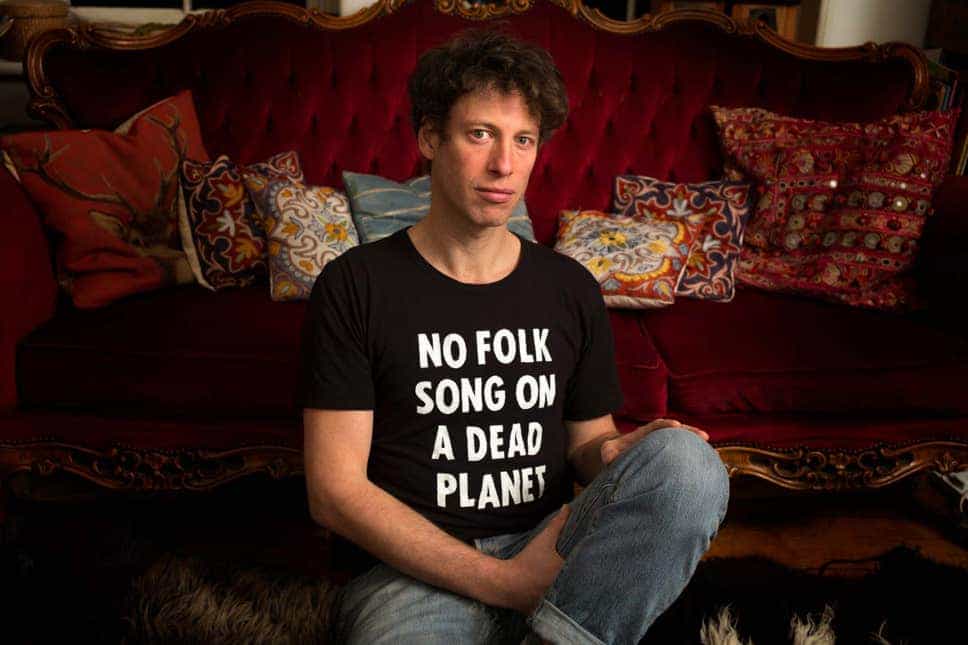
Old Wow then takes a slightly different turn, with three (and a half) consecutive songs concerning more human affairs. “Spencer the Rover”, the first of the group, recounts a homesick traveller’s decision to return to his waiting family. Given Lee’s own intrepid activities, specifically in search of folk songs, there is surely an element of self-identification.
At the foot of yonder mountain,
There runs a clear fountain;
With bread and cool water,
Himself did refresh,\
And it tasted more sweeter,
Than the gold he had squandered…
…Go home to your family,
And your rambling forsake
As the titular traveller sets off back home, Lee employs resonant strings which seem to almost sketch the terrain as they rise and fall. A member of the lute family, meanwhile, jangles in the background, evoking the activity of passing towns. The sense of movement in the instrumental is enhanced by the ensuing calmness of Lee’s final vocal section, demonstrating again his ability to truly wring the very best out of Britain and Ireland’s folk tradition.
“Jasper Sea”, a less frequently and widely reproduced song on the British Isles, is a slow and plaintive track, as is “Sweet Sixteen”. Both are concerned with grief: the former is an account of a father and son dying at sea, whilst the protagonist of the latter song rues their young pregnancy.
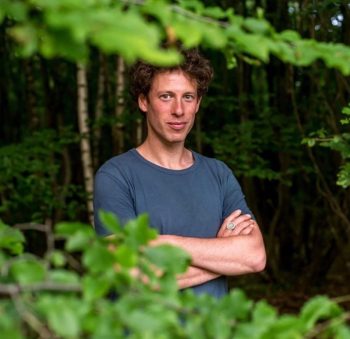
Neither “Jasper Sea” or “Sweet Sixteen” exhibit the lush, layered sounds of “Spencer the Rover” or indeed most of Old Wow. This means the more personal nature of these songs is more keenly felt, and allows Lee’s rich voice to do the heavy emotional lifting. On “Sweet Sixteen”, Lee does this to great effect, directing the listener’s focus onto the hurt abundant in the lyrics. Whereas some previous, more traditional versions of the song have included the chorus after every verse, Lee refers to it sparingly. This is significant as the chorus focuses on the local “ploughboy lads”, one of which is the illegitimate father to the protagonist’s child. Lee not only chooses to instead draw attention to the vulnerability of the young mother through the lyrical content and a quiet, isolated musicality, but through the song’s title – it is variously titled “The Ploughboy Lads”. Again, it is Lee’s relentless reappraisal of these old songs which is so impressive and captivating.
Only two tender songs after returning home in “Spencer the Rover”, Sam Lee is restlessly on the move again, bidding farewell to his lover in “Turtle Dove”. Also called “Fare Thee Well” or “Ten Thousand Miles” by other performers and curators, “Turtle Dove” signals the end of the more personal, human section of Old Wow. Once again, Lee’s voice is the introduction, but “Turtle Dove” soon begins to escalate. A sloping violin string suggests we should expect a trademark Sam Lee interpretation. Brushed drumming and piano help to build the atmosphere, whilst more strings wind upwards. Soon we are within the squall, a plucked bass and a mouth harp adding to the organised melee of the latter verses. Musically, it is a fantastic slow-build, culminating in fast drumming and frenzied strings, whilst Lee effortlessly holds and unleashes flawless notes from within the eye of the storm.
In its content, “Turtle Dove” is the classic parting song, and heavy with promises of romantic loyalty. However, there is more at play. The lover’s pledges are cemented with comparison to naturalistic impossibilities, namely birds changing colour, day becoming night, and the land flying off into the sky. Though superficially focused on the avoidance of personal betrayal, Lee is surely using “Turtle Dove” to allude to the ill-effects of a more environmental form of deceit, and the unthinkable consequences of our feckless global lifestyle.
“Worthy Wood”, the penultimate track on the album, finds Lee in a similarly conscientious place. Yet, instead of reincorporating a loving, parting song into a musical wake-up call as in “Turtle Dove”, Lee subverts the traditional lullaby categorisation of “Worthy Wood”, and reminds us that complacency is the death of Old Wow.
You will come to cry, for a week,
For the cutting of the tree…
…the criss-cross tree,
Diminishing responsibility…
“Worthy Wood” is heavy but not turgid, and repetitive, but not boring. Instead, Lee manages to create a fantastically atmospheric track which draws from its lullaby usage. The line-opening lyric, “sleep my darling”, permeates the track, contributing to an almost trance-like experience. If it were not for steadily rousing hand-hit drums, double bass, and some conspicuously electric tones in the latter half of the song, one may be completely hypnotized. Lee’s voice steals up and down throughout the song, always in control yet never forceful. “Worthy Wood” perhaps would not be as effective a song on its own, but Lee has ensured it fits perfectly into the care and awareness at the heart of Old Wow.
Through Old Wow’s closing song, Sam Lee wonderfully marries the appreciation of the natural world which runs through his album, with the more personal, human love he touches on in the latter section.
“Balfanen” is that song, and it is one of the album’s strongest. Popular in Ireland and Scotland, the song traditionally tells of a chance encounter with a beautiful woman – in Lee’s adaptation, a man – who, it transpires, lives on a mountainside, “among the heather”. Musically, “Balfanen” is not as complex as its predecessors, but a slow, appreciative coda. There are pleasant, twinkling piano chords, and sympathetic strings, but all instrumentation, inevitably, leaves room for Lee.
At points, Lee’s voice sounds slightly more fragile than on the previous tracks. He does not rush the words, but labours tenderly over each and every one in a manner that is both emotional and tuneful. As the song’s suitor pledges to build a woodland shelter, Lee pores over the description, adorning the structure with the “flowers of the mountain”. In the land near “Balfanen” there is sanctuary, beauty, and sustenance – “the spoils” – to share. It is not a landscape to lay waste to, but neither is it one to leave untouched.
Just as Sam Lee can justifiably mourn the wrecking of our natural landscapes and resources, he can also encourage its considered, loving use. In “Balfanen”, the mountainside is not an environment to spurn and avoid for fear of damaging it; we can live with it, seeking cover under its rocks and branches. There is still a chance to live “among the heather”.
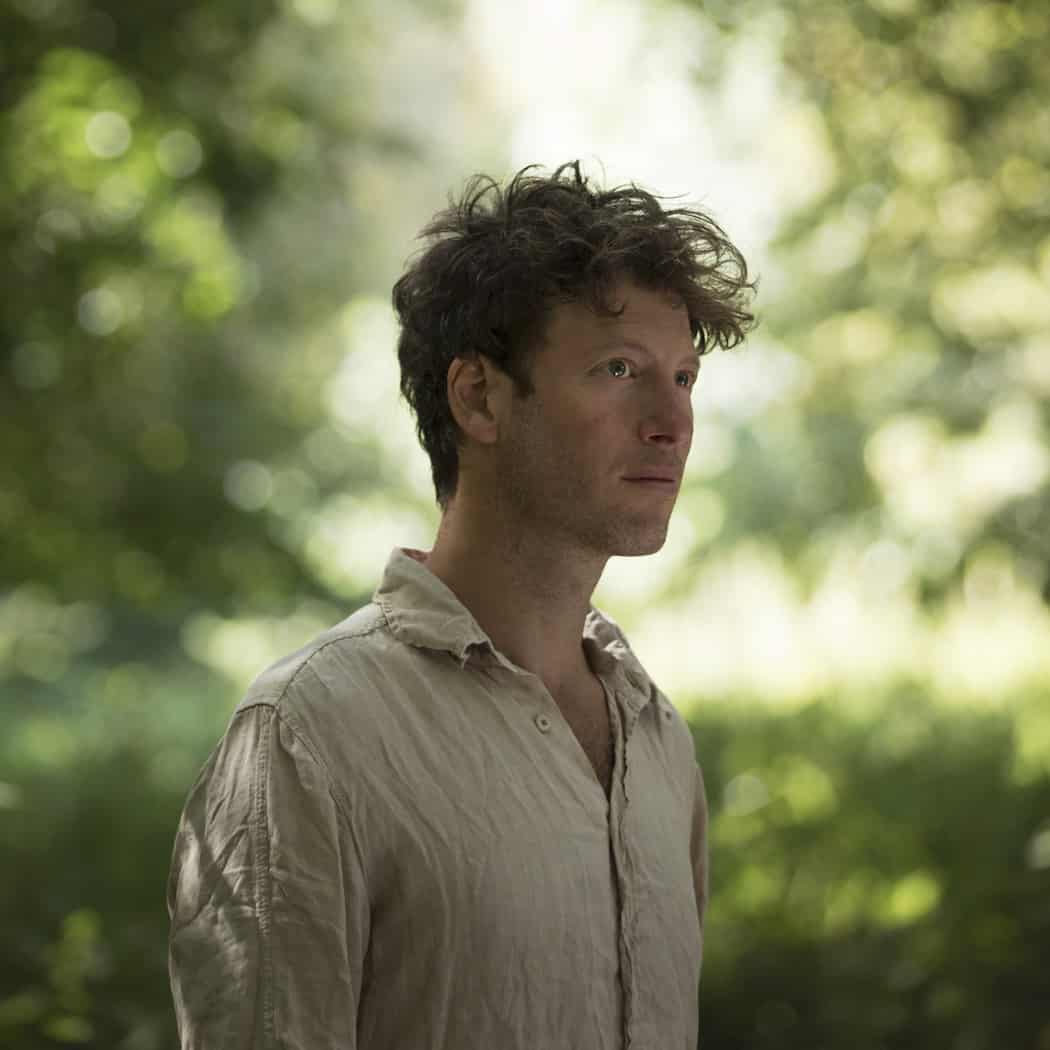
Old Wow is not at any point a pontifical wrap on the knuckles. It is consistently tender, thoughtful, and subtle.
Sam Lee does not hide the conservationism at his album’s centre, but finds varied, always beautiful ways of sharing his fears and hopes. There are cries against complacency, there are appreciative descriptions of the splendor of nature, there is a father and son falling foul of the sea, and reminders that to all things there is a cycle, and to all life a finite conclusion. It just doesn’t have to be finite in our lifetime.
— —
:: stream/purchase Old Wow here ::
— — — —
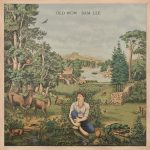
Connect to Sam Lee on
Facebook, Twitter, Instagram
Discover new music on Atwood Magazine
? © Sam Lee 2020
Old Wow
an album by Sam Lee

